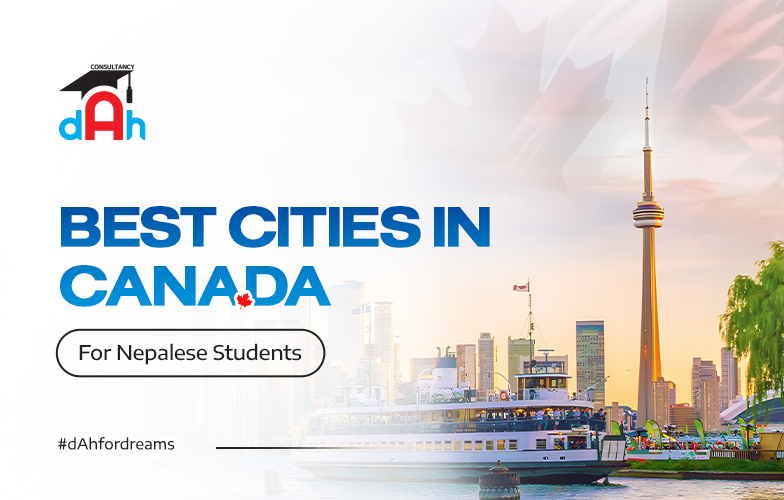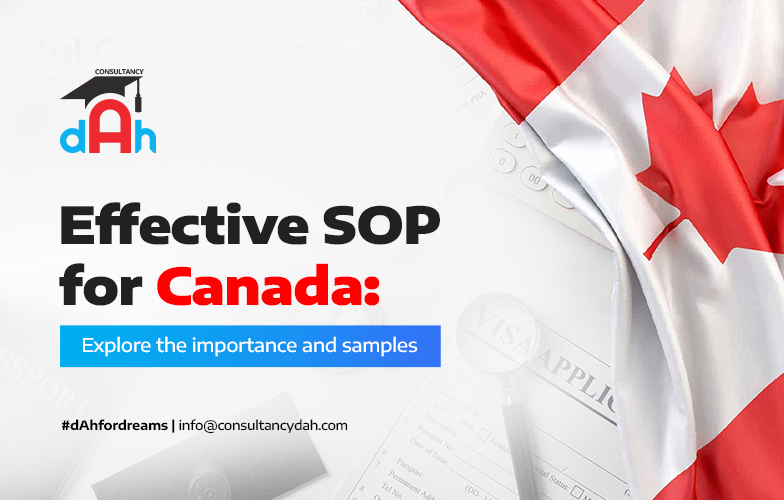IELTS (International English Language Testing System) and PTE (Pearson Test of English) are prominent language proficiency tests widely recognized for various purposes, including immigration. Choosing between IELTS or PTE for Canada tests for prospective immigrants can significantly impact their application process and prospects. If you are looking to study in Canada from Nepal then, an English proficiency test is crucial to get a student visa permit. Here is the top consultancy in Nepal for Canada where you can join the English proficiency class and apply for the whole visa processing including documentation and full guidance from the experts.
Importance of Language Tests for Canada Immigration
Canada, known for its diverse population and welcoming immigration policies, requires immigrants to demonstrate proficiency in English or French. The proficiency level is a crucial factor in determining eligibility for various immigration programs, such as Express Entry, Provincial Nominee Programs (PNPs), and study permits.
Understanding IELTS and PTE
What is IELTS?
IELTS is one of the most widely accepted English language proficiency tests globally. It is jointly managed by the British Council and IDP: IELTS test preparation. The test assesses the ability to communicate in English across all four language skills: listening, reading, writing, and speaking.
Structure of the IELTS Test
- Listening Section: This section involves listening to recordings and answering questions based on what you hear.
- Reading Section: Participants read passages and answer questions to test comprehension.
- Writing Section: This involves writing tasks, including essays or reports.
- Speaking Section: Candidates participate in a face-to-face speaking test with a certified examiner.
Advantages of the IELTS Test Preparation
Recognized Worldwide
IELTS scores are recognized by over 10,000 organizations worldwide, including universities, employers, immigration authorities, and professional bodies.
Flexibility in Test Dates and Locations
IELTS offers numerous test dates throughout the year and is conducted at multiple locations globally, making it convenient for candidates to choose a suitable time and place.
Widely Accepted by Canadian Universities and Colleges
Many academic institutions in Canada accept IELTS scores as proof of English proficiency for admission to undergraduate and graduate programs.
What is PTE?
PTE, or Pearson Test of English, is another computer-based language proficiency test. It evaluates English language skills through tasks reflecting real-life settings.
Structure of the PTE Test
- Speaking & Writing (Integrated): Candidates listen to and read information, then respond verbally and in writing.
- Reading Section: This involves reading passages and answering questions based on the content.
- Listening Section: Participants listen to recordings and answer questions.
Advantages of PTE Test Preparation
Fast Results
PTE provides quick results, usually within five business days, which can be advantageous for candidates needing to meet application deadlines.
Computer-Based Test Format
Being entirely computer-based ensures consistency and accuracy in scoring, eliminating human bias.
Accessibility and Convenience
PTE is offered at numerous test centers worldwide, providing candidates with flexibility in scheduling their tests.
IELTS vs PTE Score Comparison
When considering English proficiency tests for Canadian immigration, understanding the comparison between IELTS vs PTE scores is crucial.
IELTS (International English Language Testing System)
The IELTS scores range from 0 to 9, with each section—Listening, Reading, Writing, and Speaking—scored individually. The overall band score is an average of the four sections, rounded to the nearest half or whole band.
PTE (Pearson Test of English)
The PTE scores range from 10 to 90, with an overall score that reflects performance across Listening, Reading, Writing, and Speaking. The scoring is fully computerized, offering detailed feedback on performance.
IELTS vs PTE Score Comparison
- IELTS Band 6.0 roughly corresponds to a PTE score of 50-57.
- IELTS Band 7.0 equates to a PTE score of 65-72.
- IELTS Band 8.0 is similar to the PTE score of 79-82.
While both tests are accepted by Immigration, Refugees, and Citizenship Canada (IRCC), the choice between them may depend on your testing preferences. Consider which test format suits you best, and ensure thorough preparation.
Which is Easier IELTS or PTE for Canada Immigration?
Determining which test is easier depends on your strengths and preferences. If you are more comfortable with face-to-face communication and varied accents, the IELTS might suit you. Conversely, the PTE could be more suitable if you prefer a fully computerized test with less human interaction. Additionally, some find the PTE’s objective scoring system and integrated tasks less stressful.
Ultimately, practice is key. Familiarize yourself with the formats and question types of both tests, take practice exams, and assess which aligns better with your skills. Consider taking mock tests to gauge your comfort level with each format. This preparation will help you make an informed choice and enhance your chances of success.
Choosing Between IELTS or PTE for Canada
When choosing between the IELTS and PTE for Canadian immigration, it’s important to consider several factors. Both tests assess English proficiency and are accepted by Immigration, Refugees and Citizenship Canada (IRCC) but differ in format and scoring.
Factors to Consider
- Test Format: IELTS might be a better fit if you prefer interacting with a person. If you favor computer-based testing, the PTE could be more suitable.
- Scoring: The PTE’s automated scoring can be perceived as more objective, while the IELTS involves human examiners.
- Preparation: Consider your strengths. Practice both formats with sample tests to determine which aligns better with your skills.
Ultimately, the choice between IELTS or PTE for Canada student visa depends on your personal preferences and comfort level. Thorough preparation and familiarization with the test formats will help you make an informed decision, increasing your chances of success in achieving your desired scores for Canadian immigration.
Conclusion
In conclusion, both IELTS and PTE are reputable tests that assess English language proficiency effectively. The choice between them depends on individual circumstances, including test availability, personal preferences, and immigration requirements. Prospective immigrants should carefully consider these factors and prepare adequately to achieve their desired scores.
FAQs
How long are IELTS and PTE scores valid for immigration purposes?
Both IELTS and PTE scores are typically valid for up to two years from the date of the test.
Can I retake the IELTS or PTE test if I am not satisfied with my scores?
Yes, candidates can retake either test to improve their scores. There are no limits on the number of times you can take these tests.
Do I need to take both IELTS and PTE if I am applying for Canadian immigration?
No, you only need to take one of the tests. Choose the test that best suits your preferences and meets the requirements of your immigration program.







